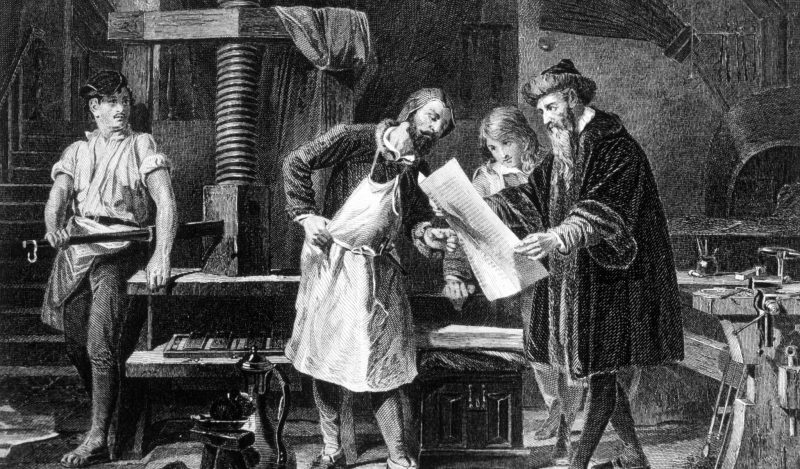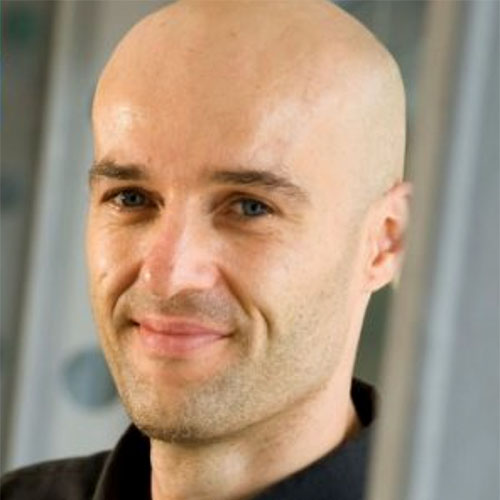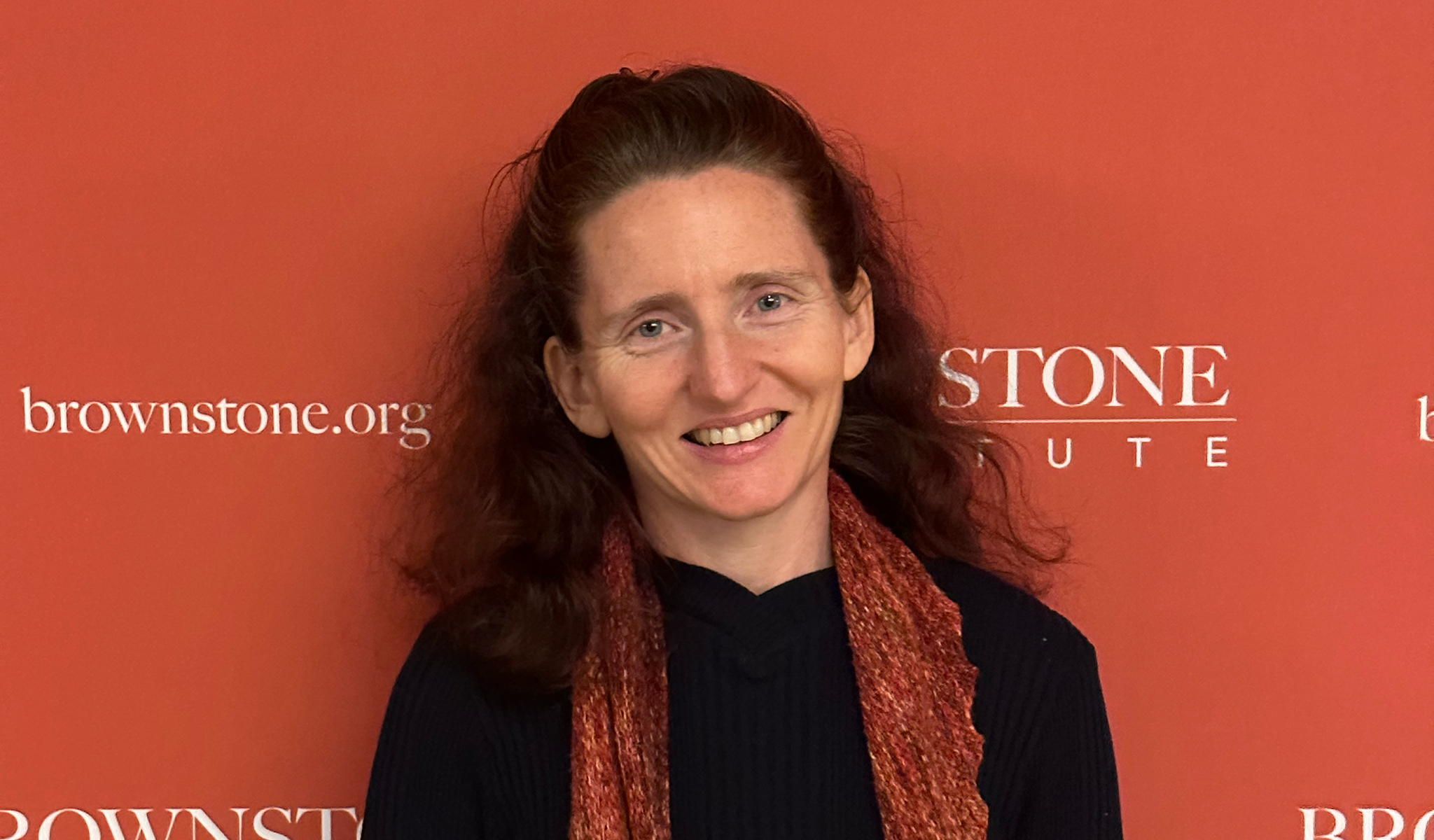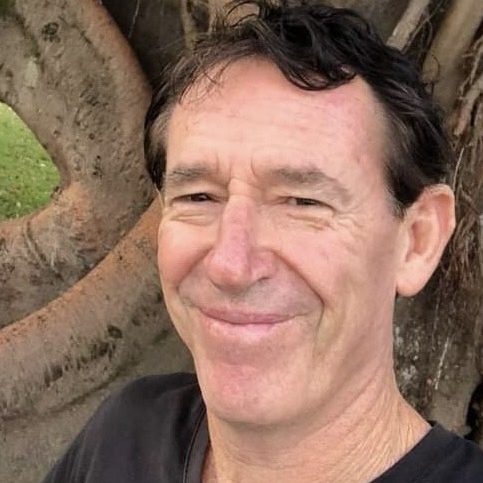In a recent piece, we argued that two complementary reforms are needed to make Abraham Lincoln’s 1863 vision of “government by the people” a reality in Western countries. To restore power to the people, we proposed a first reform that would assign ordinary people the role of appointing the leaders of our government bureaucracies and QuaNGOs, often collectively referred to as the ‘deep state,’ via citizen juries. In this piece, we describe the second part of our two-part reform agenda.
The goal of this second reform is to involve ordinary people in the production of news, information, and analysis, all of which is currently under the purview of ‘the media’ in its various guises. The various entities comprising the modern media sector are in a race to the bottom in which they barely even keep up the pretence of sharing information that educates people in order to help them make good decisions. Instead, media has become a means for the wealthy to manipulate decisions around voting, purchasing, lifestyle, health, and everything else.
Newspapers, television, internet sites and social media have become merely instruments of manipulation at the service of elite interests. We have seen Twitter, Google, LinkedIn, YouTube, Facebook, and other commercial information companies which started out a mere decade or two ago with promises of independence and open media, end up as our censors in the past two years, enthusiastically adding their contributions to the long and bleak history of totalitarian deletions.
How do we push against further misuse and towards the dissemination of high-quality information that genuinely helps ordinary people? Just as with citizen juries, the people themselves should assume responsibility for the production of information, in a system separate from commercial media. ‘Media by the people’ must happen in order to prevent ‘media for the people,’ which in turn becomes ‘manipulation of the people by elites.’
Our ‘media by the people’ reform proposal is also a means of arming us to fight on what has become the principal global battlefield: the battlefield of information. ‘We’ are constantly being manipulated not just by our own governments and homegrown interest groups, but also by foreign interest groups, including governments and international organisations that do not have our best interests at heart and may in fact wish us ill.
Just think of the WHO or the Chinese propagandists. These onslaughts are relentless. ‘We’ also wage media wars in other countries for our own benefit, so a savvy media army is required for both offense and defence. Whether we like it or not, we are now in a constant state of undeclared war in which words and images are the new tanks and artillery.
Functional communities in the US today, such as the Amish, the Mormons, and the Hasidic Jewish communities, produce their own media and this is one mechanism through which they have resisted the covid madness of the last 2.5 years. An example closer to home is the authors of Brownstone Institute, who have formed our own media community.
Yet, such communities and their media are small in reach compared to the mass media. Our concern is how to scale up community media production and put it to work for the great mass of the population that has not managed to escape the clutches of informational slavery: the many who today are well and truly divided and ruled.
We first sketch what we think would work, and then tackle the tricky issue of how it can be organised while maximising personal autonomy.
Tactical plans
We have in mind a community media generation system, at either the national level or the level of states or provinces. Via participation in this system, ‘the people’ will learn how to produce media and will embed their personal expertise into the effort. By tapping the awesome reservoir of knowledge contained within the population, our envisaged system provides a channel through which everyone can benefit from the people’s own collective expertise. Much of this expertise is presently inaccessible due to elite media control.
The community media generation system can also raise the awareness of the population about manipulation techniques employed on both traditional and social media platforms. Training in what it takes to create information empowers the population to recognise and defend itself against malicious manipulation, and to be able to respond appropriately to our enemies.
Operational implementation: Communities in practice
What would this look like in practice? We envision a pilot of the basic operational outline below, initially in a single region or American state that democratically chooses to try it out, such as via a referendum.
On reaching a certain age (say, 20), every member of the population would decide whether to contribute to his or her community of choice via media generation, or via a contribution of time to some area nominated as an important public good by that community. Some communities might nominate public park clean-ups, some road repair, some domestic violence support, some the building of public housing – any public good perceived by the community to be presently underserviced by public structures could be nominated. Such ‘social service,’ to which jury duty also belongs, is normal in many European countries and also in many schooling systems, such as the International Baccalaureate system in which all students engage in community service.
If a person opted to fulfil the community service requirement via media generation, he or she would first undertake a few months of general technical training. Each person would receive training in the production and sifting of information, manipulation techniques and historical examples of them, the practical side of running media channels, and so on.
Like training with actual weapons in earlier times, this universal training should be technical rather than oriented towards a single ‘truth’ that everyone is supposed to absorb. The goal should be to give people the basic toolkit of media combat: to understand how ‘truth’ is produced in the media via the dissemination of articles, videos, infotainment, surveys, and research reports.
Because vigilance must be perennial, citizens who initially undertook basic training would periodically spend short chunks of time (say, one month every five years) on the production and sifting through of news and information. This mirrors the system of military conscription in several countries, such as Switzerland, in which conscripts were required to use their guns every now and then to keep their skills fresh. Those who declined to participate in media generation would spend this month every five years contributing to some other public good nominated by their community of choice.
What do we think this would achieve?
Diversity as strength
In social matters, we do not believe in a thing called ‘the unbiased truth,’ and the sooner we can rid our societies of the fantasy that such a thing exists, the better. Rather, a person’s sense of reality comes from exposure to a large set of different perspectives, all biased from the point of view of other perspectives, but each sincerely championed. The different perspectives produced within our community production system staffed by citizens would therefore need to be available to the whole population.
We envision many media groups, reflecting the diversity of opinions, religions, and ideologies in society. For any recognised group mustering enough supporters at the time of a major election (say, 1% of the population as a whole or 10% of some region), a separate public media organisation is set up and publicly funded for the duration of that election cycle (e.g., 4 years), with leadership appointed by citizen juries drawn from that part of the population.
That organisation could accept newcomers, somewhat like a traditional militia system. People just coming of age could choose which group to serve in, and could serve locally, whether in media generation or in other public goods production.
A community could also set up its own media organisation rather than have its ‘media arm’ initiated as a public entity, but to tap into the community system, its leadership must be chosen via citizen jury, for otherwise it could serve as a shell for private interests. (If its leadership were selected by a citizen jury drawn from people who have self-identified as subscribing to its values, then Brownstone Institute itself, under our system, would qualify to receive and help train a stream of young people.)
Information about current affairs, sports, culture, science, or any other topics deemed newsworthy would be produced by these groups via news, in-depth reports, and research papers. Rather than hoping vainly for an ultimate arbiter of the illusory ‘unbiased truth’ to save us from the constant manipulation attempts of elites, our system would rely on different information presented from different sincerely held viewpoints, each vying for more contributors and therefore each subject to competitive pressure.
Young people opting to serve a community of their choosing via media generation would complete their basic training and then try their hands for a few weeks at the practical side of news production and the sifting-through of information within that community. The sifting process would involve judging (through a voting or certification system, for example) the quality of the information brought to the attention of their media group on the topic of their expertise, whether that is knitting patterns, fashion, health, or foreign affairs.
In later years, returning contributors would contribute their expertise directly to news production as well as to the winnowing of information. Drawing on this diverse expertise, most media groups would probably begin covering all major news topics after a few years. The community media generation system would thereby tap into the combined expert knowledge of the entire population, as it moves through the lifecycle, to produce news and to evaluate it for the benefit of the whole population, akin to a mass research-production and peer-review system.
Aggregating the opinions of its ‘members’ via information-sifting activities is a way for each community to draw on the weighted expertise within the part of the population it services to recognise what is good and what is garbage. The First Amendment would apply in the ecology of media groups. While individuals must choose the groups with which they serve, no barriers would bar anyone from consuming media from anywhere and thereby accessing a nearly infinite variety of ‘distilled truths.’
The next level
Once established, the system could be refined in various ways. For example, some people might do their community media service only by contributing their expert opinions on received media content, while others might only produce content or work in an administrative capacity. As with any production process, many roles must be filled, and people can slot into what they are good at. The option to bow out of media generation and into another form of public goods production at some point in life, or the reverse, would also be available.
Population-staffed media groups would constitute a standing media army of the people, by the people and for the people, useful both for domestic defence and foreign offense. A highly diversified information landscape would emerge in which some media group somewhere will have the expertise to recognise whether any particular story being floated elsewhere is nonsense, and has the platform to explain why.
The diverse interests and ideologies of the entire population would be constantly present and constantly voicing their perspectives, fuelling innovation and preventing a monoculture from emerging. Being comprised of public institutions essentially paid for by the people’s donation of time, the media landscape would not be for sale to the highest bidder as it is today.
As in other sectors like education and healthcare, in our system of public media production there would still be room for private enterprise, e.g., commercial news companies and privately funded think tanks. Private media would be deliberately kept separate from the community system so that commercial incentives of the former would not infiltrate the latter.
Indeed, the community system itself is expected to act like a break on the nonsense dribbled out on the commercial side. With public media outfits constantly offering competition via producing and sifting through their own content rather than copying content generated for commercial purposes, privately run groups should no longer be able to get away with fantasyland stories that serve some deep pocket.
Large platforms could still operate and try their bogus ‘Fact Checking’ shtick, but the population would be wiser to such manipulation tricks. What seems likelier to us is that the information disseminated via the Facebooks and Twitters of this world would start to reflect what is produced by the media battalions of the population.
The impact of such a new media landscape on elections should be massive. Elections are currently fought via mass media campaigns in which access to the belief formation process of populations is sold off to vested interests. Fix the media problem and elections should function better too.
One might object that community media will just add noise and thereby increase apathy by further overwhelming the population. This is unlikely, particularly during election times, because the community system will produce ‘honest noise’ generated by the population itself. The population will come to identify personally with the media landscape, having seen up close how media is produced and how their own part of the community has tried to make sense of the world. Come election time, we think voters will pay attention to what their – our – media, produced by people like themselves, has to say.
With more honest media on our channels, charlatans and lightweights will be uncovered, major topics will be aired, key trade-offs will become visible, and the electorate will be in a far better position to make informed decisions that further their own interests. Media directly by the people should also reduce the degree to which politicians will coalesce into aristocratic elites, because a diverse and critical media sector will give a much wider talent pool fair consideration, as inexpensive means of pushing talented contenders out of the race (fake stories, smear campaigns, scare tactics) simply cannot dominate the airwaves.
Counterstrikes?
Since the proposals contained here and in our preceding piece are meant to overcome the political influence of Big Money in the institutions it has captured (media and the ‘deep state’), we should consider the likely countermoves of the elite to either prevent or pervert these reform proposals.
In terms of prevention, the current elites should be expected to run fake scare campaigns if these proposals become real contenders. They will argue through various means that you can’t trust the people with either appointments or with media. It’s a tough argument for them to run, but they’ll surely try it, with all the creativity and passion that can be bought.
More perversely, elites can scupper these moves by fiddling with the operational details in such a way that their interests are smuggled back in. Imagine insisting, for example, that private companies be the ones to organise the citizen juries or to identify the groups of citizens that will set up media organisations. Imagine claiming that it would be a matter of ‘national security’ that parts of the government bureaucracy must be exempt from appointment by citizen jury, which would then quickly see every major post identified as a national security post. Imagine requiring that community media producers can be sued for defamation, which would allow Big Money to kill off unwanted community media activities via endless lawsuits. The mind reels.
These countermoves and more are all possible, and the only answer we have is that real political will is needed to implement these reforms somewhere and take the fight to the elite. The trump card for such reforms is that if they are set up and can be made to work in one country or state, then jealousy and competition become forceful allies in adopting them elsewhere without scuppering them in the details. This also goes for other successful democratic reforms: get them right in one country or state, and the rest are likely to follow.
Freedom and community responsibility
Good things are already being achieved without a system built on organised service and community responsibility. Some of those who recognise the ultimate futility of atomistic existence can decide voluntarily to work at forming a community, and Brownstone Institute itself is a shining example of what can be created from voluntary community-building efforts.
By contrast, people without the resources to effectively contribute to communities in a voluntary fashion face a similar fate as those who opt to go it alone. If their desperation does not lead them to criminal pursuits, such people either become charity cases or slaves to the superior forces of the organised and better-off. As inequality rises, this problem grows.
Our community media generation program has the flavour of a militia: a service program wherein citizens have responsibilities and cannot free-ride. If the system were entirely voluntary, everyone would have a strong incentive to let others do the work. That is precisely how we got into this situation in the first place: people floated along with what was ‘freely’ provided, not realising that what was consumed was paid-for manipulation that, over time, shackled their minds.
Functional communities already set duties upon their members that cannot be shirked. In the US there are taxes, jury duty in the criminal justice system, army conscription in times of war, and several million pages of state and federal regulation with which the population is required to comply. None of these things is voluntary. In some countries, including much of Europe, the idea of compulsory social service has been around for decades, and both citizen juries and media production would easily fit into that existing system.
Yet the laudable mission of Brownstone Institute is to preserve individual freedom to the largest extent possible. In the words of BI’s founder, Jeffrey Tucker: ‘Its vision is of a society that places the highest value on the voluntary interaction of individuals and groups while minimizing the use of violence and force including that which is exercised by public or private authorities.’
We fundamentally agree with this intent.
Can the modern problem of media manipulation be addressed effectively without compelling some form of community-level responsibility?
One alternative to compulsion is to have public funding of these community structures, a leadership appointed by citizen jury, and then jobs in community media generation offered randomly to members of the community, and offered to the first who agrees to do a stint. This hides the compulsory aspect of the overall program, i.e., the taxes funding the program that are not optional to pay. It is true that high-quality people could be found to staff these community media roles if they are made sufficiently lucrative.
Yet, truly top thinkers and doers would be expected not to participate, as their time is worth the most, and this would then deprive the community as a whole of their knowledge unless they voluntarily opted to participate in private media production. With the private system thus able to attract the ablest people, today’s media dynamics would be likely to continue to some degree.
Another possibility would be to fold media duty (and community public goods production, if desired) into a package of duties citizens do for their community – a package that already includes taxation and jury duty. Substitution between those duties would then be allowed, so one could for example contribute more time to community media generation and pay lower taxes. This would make it more enticing for high-skilled people, facing large tax bills, to join in.
Such variants, also paid for by community funds, still draw on the community coercion implicit in taxation. The central conundrum that cannot be avoided in the writings on liberty is that functional communities come with communal responsibilities, particularly when communities are threatened by well-organised large corporations and institutions.
We live every day with many other community-level compulsions that we take for granted. We pay huge fractions of our income in taxes for ‘the community,’ we implicitly agree to community norms that significantly circumscribe our freedoms in areas from ‘decency’ to architecture, and we agree to sacrifice our freedom to choose certain actions when those actions would curtail the freedom of others – from murder to trespassing.
Yet proposals to reduce personal liberty allegedly ‘for the good of the community’ risk pushing us towards the well-trodden slippery slope that has most recently been rocketed down by covid-era criminals. Personal medical freedom, freedom of movement, and the freedom to show one’s face have all been thrown on the bonfire, justified by the gleaming golden wrapping of ‘community welfare.’ Is our proposal of community media generation tantamount to advocating for the destruction of personal rights in service to some intangible and unproven ‘public good?’
The question boils down to whether one thinks the solution is proportionate to the problem at hand. Is today’s assault on the quality of the information that reaches the population bad enough to warrant a community-organised response involving new responsibilities for citizens? Are we in an actual media war? We think the answer is a resounding ‘yes,’ and point to several recent Brownstone pieces (for example, here, here, and here) that indicate others in our community think so too. However, we accept that, to many people, the answer might be ‘no, it is not that bad, and we can manage without getting organised.’
To arrive at an answer, we advocate using the time-honoured democratic way of deciding how much a community can demand of its citizens: via elections and referendums in which citizens decide how much they wish to bind themselves and other citizens to joint responsibilities. After all, one is not ‘free’ to ignore the outcome of elections and referenda.
Conclusion
Many of our current problems with politicians and captured deep-state bureaucrats would melt away if we could find the political will to fix the media system and the appointment system by returning direct choices in these areas to the people. Politicians would be more strongly kept to account, and the machinery of state would be more oriented towards our collective interests.
To have government ‘for the people’ in our modern world, both media and top appointments in the public sector must be produced ‘by the people.’ Adopting our proposals would create a fourth arm of democracy customised to combat the corrosive concentrations of power that characterise our modern age. In the long run, we contend that personally stepping up to the task of rejecting manipulation and abuse, and reclaiming our power, is the only way to reanimate Lincoln’s noble yet stalled and sputtering vision.
Join the conversation:


Published under a Creative Commons Attribution 4.0 International License
For reprints, please set the canonical link back to the original Brownstone Institute Article and Author.











